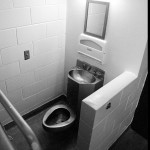Despite a record-breaking state budget of $88.7 billion and a raging drug-addiction horror show that kills 21 Floridians a day, the state prison system is eliminating programs that help alcoholics and drug users prepare to move back to your neighborhood.
Brilliant! Thank you, legislators, for refusing to provide money to fight the opioid epidemic. Dumping untreated drunks and junkies who have been warehoused for years into communities with no support is such a marvelous idea. Nothing can go wrong in that scenario, can it?
Across Florida, 33 mental health and substance abuse facilities that treat inmates are either closing or will be handling only work-release operations after June 30 because Department of Corrections officials must cut nearly $30 million in substance abuse and mental health programs. Not that they want to.
DOC warned state legislators in February that it would need more money to provide constitutionally required primary health care for 96,000 inmates and to meet orders from three Florida courts to provide another $100 million in services as the result of deliberate and chronic underfunding of prison health care over years.
How did legislators react? This crew defiantly made cuts and lowballed the $2.4 billion corrections budget by $79 million. Corrections needs $28 million more alone to renew the basic health care contract with Centurian LLC, the only bidder DOC could find in the last two years to take the job that pays nearly $440 million annually.
Hundreds of Central Florida inmates now will be dumped into cells without a chance to better themselves at facilities in Orlando, Clermont, Kissimmee, DeLand, Daytona Beach and Polk City, and they will return to local communities having gotten not a whit of help. Many are considered high-risk offenders.
The remarkably successful 38-year-old Reality House in Daytona Beach, the state’s only substance abuse program to house inmates before they begin work release, unfortunately was caught up in the frantic slashing. Though fewer than 5 percent of its inmates returned to prison in the past, Reality House will be laying off 60 people and sending 100 men enrolled in the unique program back to sit in their cells until their release dates.

Photo by Susan Madden Lankford
Addiction help isn’t the only target for reductions. Shamefully, the DOC is saving $500,000 from firing prison chaplains and librarians. It’s pretty low to deny a prisoner a pastor or a book.
Meanwhile, try to decipher the thought process of elected officials who cut treatment beds in the midst of a public health crisis and in a state that last week joined five others to sue the drug companies that make the killer pills. Florida looks stupid — not to mention confused about it wants to do to fight addiction.
DOC Secretary Julie Jones laid out the problem during an interview with the Tampa Bay Times and the Miami Herald last year:
Legislators may think people in prison are “just inmates,” but she pointed out the inconvenient truth:
They come back home next to you and me. We need them to be productive citizens, and we need to give them a chance.
© Humane Exposures / Susan Madden Lankford











